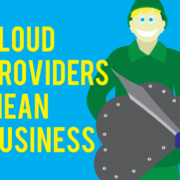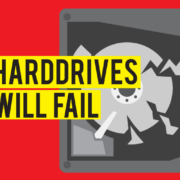The Increasing Importance of Backup for Macs
There are many reasons why a business may elect to use Macs instead of PCs. They are often considered more stable, more user-friendly, and most importantly, there are many high-level professional programs and applications that can only be run on Apple computers.
While these reasons can justifiably sway a business towards relying on Macs, the idea that they are immune to viruses – a platitude we’ve all heard before – is a gross overstatement that must be reevaluated if Mac users want to ensure that they keep their digital information safe from malicious online agents.
It is crucial for Mac users to understand that, while incidences of viruses for Macs are indeed fewer than for PCs, they do, in fact, exist. Not only are Macs potentially susceptible to computer viruses, but that susceptibility is now increasing as well.

Back in 2004, there were over fifty times as many PCs sold as Macs, but that ratio has shrunken significantly in recent years. While PCs do continue to dominate the computer market, the sales of Apple computers are increasing at a much faster rate, and PCs are now only outselling Macs at a twenty-to-one ratio. As Mac users continue to grow in numbers, so do the number of security dangers that can potentially threaten their systems.
This increase in popularity and potential victims has resulted in a rapidly rising interest amongst hackers to compromise Mac operating systems. Unfortunately, when it comes to the world of computer hackers and viruses, where there is a will there is often a way. Moreover, it is important to realize that a large portion of Apple’s sales are for their increasingly popular and ubiquitous iPhones and iPads, which are potentially just as vulnerable as computers are when it comes to contracting viruses while accessing the internet.
Case in point: Apple itself just recently elected to modify their website’s page devoted to their new OS X operating system to reflect the undeniable fact that Macs are not as invisible and impervious to viruses as they once claimed them to be. Indeed, viruses and malware for Macs are very clearly far from nonexistent, with well over 650,000 Macs having been infected by the “Flashback” botnet virus only a few months ago. Apple responded to this outbreak by removing the statement “It doesn’t get PC viruses” to the more vague “It’s designed to be safe.” They also revised their previous message of “Safeguard your data. By doing nothing.” with the more realistic and less overstated “Safety. Built in.”
While this retracing of steps by Apple should be considered a smart move, it does fly in the face of the fact that one of the major security concerns with Mac computers is Apple’s continuing lack of security support for their previous operating systems, which are still currently in use by millions of consumers and businesses worldwide.
The bottom line is that whether your business relies on Macs, PCs or a combination of both, viruses can easily lead to identity theft and data loss on any of your machines, if not properly protected.
What can business users do to keep their Macs and other Apple devices secure from online threats?
While it should be obvious at this point that all computers should have antivirus software installed, the importance of keeping your business’s critical data securely backed up offsite to avoid potential data loss from elements such as natural disaster, employee error, or theft, can not be overemphasized. After all, while the majority of computer users understand the importance of taking advantage of antivirus protection software, the nefarious creators of these viruses are constantly at work figuring out ways to get around these safeguards.
The only real way to be 100% sure that you are completely protecting your business data is by covering all your bases via an effective antivirus system combined with a secure online data backup plan.
At KineticD we are committed to providing the highest quality backup service for your entire business environment, whether you rely on Macs or PCs. Try out our free 14 day trial now and see how we can help secure your business data.








Leave a Reply
Want to join the discussion?Feel free to contribute!